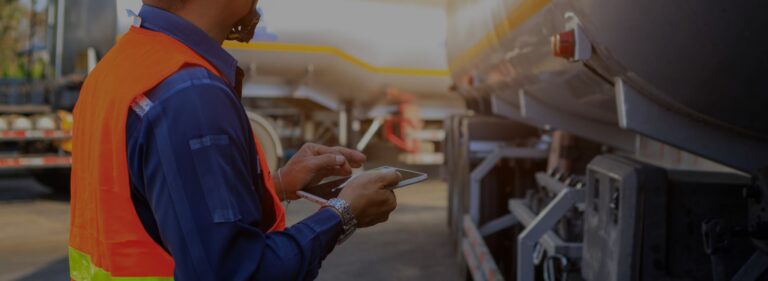Author: Reiner Bachthaler

Logistics Software and Platforms for Bulk Goods: The right choice for every user role
The bulk goods industry is increasingly characterized by digitalization, which is particularly important for logistics. The introduction of digital solutions has not only improved the efficiency of processes, but also increased transparency and traceability in real time. A lot has changed from earlier manual processes such as paper delivery bills and personal truck registrations to modern, digitally supported logistics processes. However, this development has also been accompanied by new requirements for software and platforms, which are crucial for the various user roles in bulk goods logistics.
The need for flexible software solutions
In bulk goods logistics, the requirements vary considerably depending on the company and location. While hundreds of trucks are handled daily at one location, only a small number of deliveries per day need to be processed at another. There are a wide variety of roles and therefore also a wide variety of requirements in the logistics workflow. This means that the software solutions must be flexible enough to cope with the different circumstances. The digitalization of logistics has also led to more and more mobile devices such as smartphones and tablets being integrated into processes. This development presents companies with the challenge of adapting their IT infrastructure in order to use both stationary and mobile applications effectively.
Technological developments in bulk goods logistics
The IT landscape of bulk goods logistics has changed significantly in recent years. The introduction of cloud solutions, browser-based applications and mobile apps has revolutionized the way data is handled and fundamentally changed the way logistics processes are managed. These new technologies not only enable the real-time exchange of information, but also contribute to faster and more accurate data processing. Especially in the field of bulk goods logistics, where a large number of deliveries and complex processes often have to be coordinated, these technologies offer decisive advantages. Another significant change is the increased use of mobile devices in logistics. Desktop solutions used to dominate in factories, but the trend is increasingly moving towards flexible and mobile applications. This development has been driven by the increasing mobility of employees and the need to be able to access data anytime and anywhere.
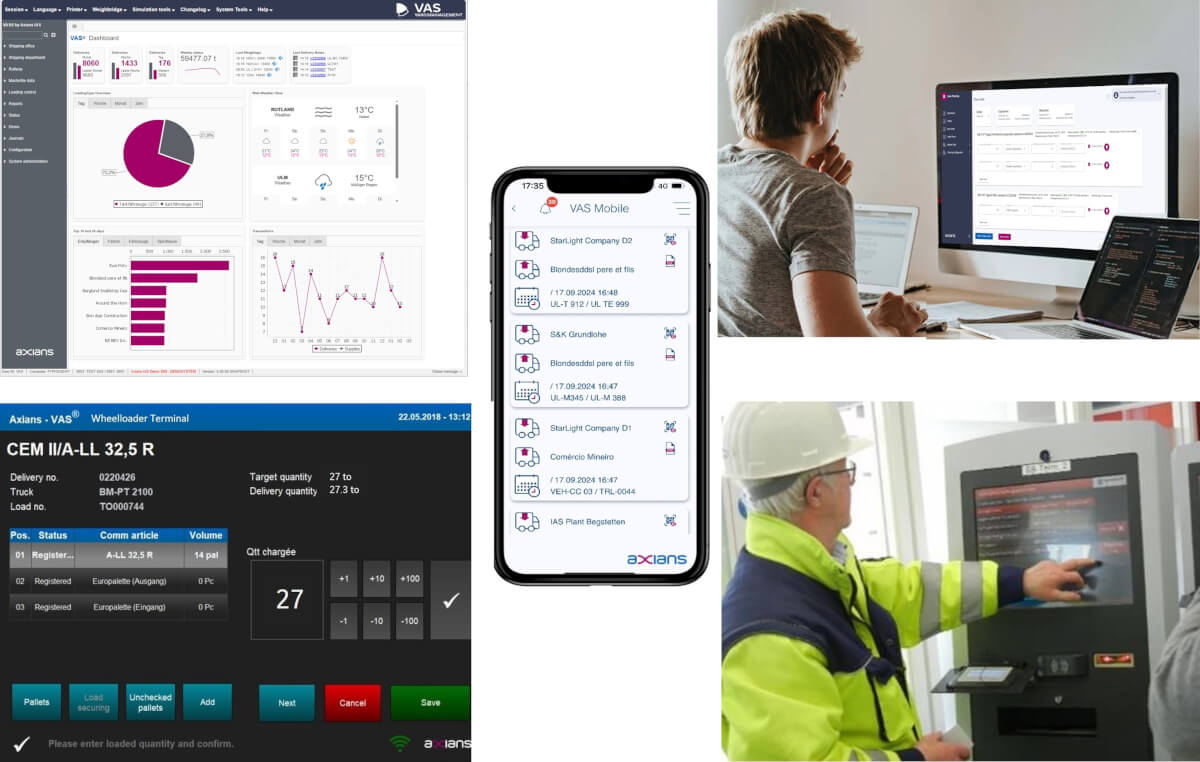
From desktop solutions to mobile applications
In the past, logistics processes in the bulk goods industry were often controlled by desktop solutions that were installed locally in the company. These so-called on-premise solutions are still widely used today and their strengths lie in their performance and adaptability to the specific requirements of a company. Desktop solutions are still very important, particularly in areas where large amounts of data need to be processed and the operator needs to access a large amount of different information at the same time, such as when weighing deliveries. However, these systems also have weaknesses: they are usually not flexible enough to meet the dynamic requirements of logistics. In an industry where real-time data is crucial, it is not enough to access stored data – it must be available anytime and anywhere. This is where browser-based portals and mobile applications come into play, increasing flexibility and accessibility and giving users the ability to access important information from different locations.
Advantages of cloud and browser-based solutions
Browser-based solutions offer a number of advantages compared to traditional desktop applications. They are largely platform-independent and can be used on both stationary computers and mobile devices. This flexibility is a decisive advantage, especially in an increasingly mobile working environment. If these solutions are also cloud-based, a further advantage is that they enable data to be stored and managed centrally, making it easier to access and update information in real time. Cloud-based platforms ensure that all employees in bulk logistics can access the same consistent data, which optimizes collaboration and communication between different user roles. These platforms are ideal when fast response times and access to real-time data are required, for example when monitoring deliveries or coordinating schedules.
Mobile applications: A must for bulk goods logistics
The increasing use of mobile devices has led to a paradigm shift in bulk goods logistics. Truck drivers anyway, but also dispatchers and many other employees no longer have to work stationary – they can now perform their tasks flexibly and on the move. It is crucial for mobile applications to be user-friendly, fast and easy to use, as many of the users are not IT experts but work directly in logistics processing. For truck drivers, for example, mobile apps offer a range of useful functions. They can plan their routes, track deliveries and receive all relevant information about their delivery orders in real time. Check-in and check-out at the plant is also increasingly being handled digitally, e.g. by using QR codes or TANs in a mobile app to log in at self-service terminals at the plant. This not only saves time, but also reduces sources of error that can occur with manual processes. Another advantage of mobile applications is that they improve communication between the various parties in logistics. Push notifications allow truck drivers to be informed immediately of changes to the delivery or route. This increases flexibility and reaction speed and ensures that all parties involved are always informed about the current status of logistics processes.
User roles and the right IT solution
In bulk goods logistics, there are a large number of user roles, each of which places different requirements on the software used. Each of these roles requires a specific solution that takes their individual needs into account. Some of the most important roles and their IT requirements are described below.
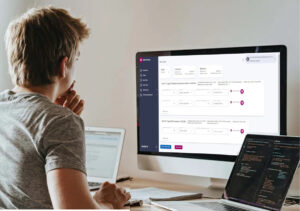
Einkäufer arbeiten häufig im Büro und benötigen Software, die eine schnelle Verarbeitung von Bestellungen, Anfragen und Bestelllisten ermöglicht. Desktop-Lösungen bieten hier aufgrund ihrer Leistungsfähigkeit und der Möglichkeit, große Datenmengen schnell zu verarbeiten, nach wie vor einen Vorteil. Allerdings gibt es auch immer mehr Einkäufer, die mobil tätig sind, etwa Baustellenleiter oder Einkaufsleiter. Für diese Gruppen sind mobile Apps ideal, da sie schnelle Bestellungen und eine gute Übersicht ermöglichen.
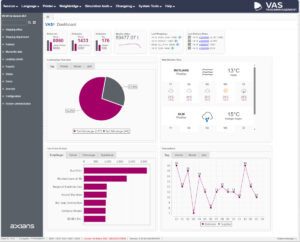
Disponenten koordinieren die Logistik zwischen den verschiedenen Parteien und müssen in der Lage sein, Daten in Echtzeit zu analysieren und Entscheidungen zu treffen. Desktop-Anwendungen sind hier oft die beste Wahl, da sie eine detaillierte Ansicht der Daten und eine umfassende Planung ermöglichen. Auch browserbasierte Portale können für Disponenten von Vorteil sein, da sie den Zugriff auf Informationen in Echtzeit erleichtern und eine benutzerfreundliche Oberfläche bieten.
Weighers need to manage large amounts of data and require powerful software to manage weighing operations and orders. Desktop applications are often the best choice here too, as they offer high performance and comprehensive functions. However, it is also important for weighers to be able to work on the move in order to monitor the status of deliveries and weighing operations in real time.
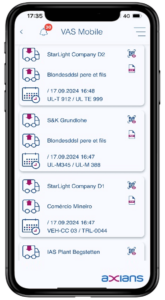
Lkw-Fahrer benötigen mobile Anwendungen, die sie bei ihren täglichen Aufgaben unterstützen. Diese Apps sollten so einfach wie möglich zu bedienen sein und den Fahrern nur die nötigsten Informationen zur Verfügung stellen, um Ablenkung zu vermeiden. Hier eine Kurzübersicht der Aktivitäten, für die der LKW Fahrer elektronische Unterstützung benötigt:
- Vorabinformationen über anstehende Fahrten zur Unterstützung der Routenplanung.
- Check-in-Funktionen im Werk, z. B. über QR-Codes oder TANs.
- Check-out-Funktionalität, einschließlich Wiegen und elektronischer Lieferscheinerstellung.
- Echtzeit-Updates zu Lieferänderungen über Push-Benachrichtigungen.
- Fahrt zum Empfänger (erfordert offizielle Lieferdokumente)
- Entladung mit elektronischem Abliefernachweis (ePoD) + Übergabe an zentrales System
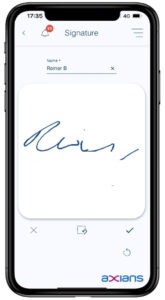
Materialempfänger wie Mischmeister müssen den Erhalt von Materialien überwachen und bestätigen. Sie benötigen sowohl Desktop- als auch mobile Lösungen, je nachdem, ob sie stationär oder unterwegs arbeiten. Eine mobile App, die Echtzeit-Informationen über Lieferungen und Bestellungen liefert, kann hier sehr hilfreich sein.
Conclusion: Role-based platform selection - the key to success
In bulk goods logistics, it is crucial to select the right software and platforms individually for each user role. Digitalization has changed the industry significantly and requires tailor-made solutions that meet the specific needs of different user groups. Desktop solutions are still important in many areas, but the trend is clearly moving towards mobile and flexible applications. The combination of cloud-based, browser-based and mobile solutions offers great flexibility and ensures that all employees in bulk materials logistics can work together effectively, whether they are in the office or on the move. A thoughtful choice of the right software platform can increase efficiency, reduce errors and improve collaboration. Companies should consider the individual needs of their employees when selecting software and associated platforms and, where appropriate, engage external service providers who can help implement and select the best solutions for each user role. A well-coordinated system helps to make bulk goods logistics efficient, transparent and future-proof.

Reiner Bachthaler
Senior Product Manager
We work with you to design a customized solution.
Let us turn your challenges into successes – contact us today!
You are currently viewing a placeholder content from HubSpot. To access the actual content, click the button below. Please note that doing so will share data with third-party providers.
More Information

